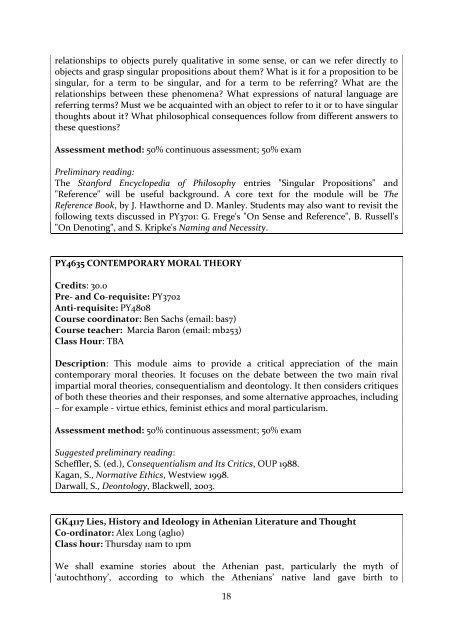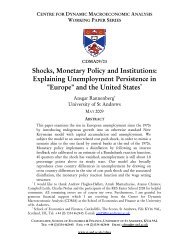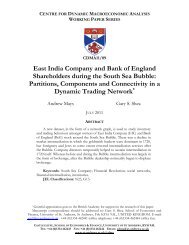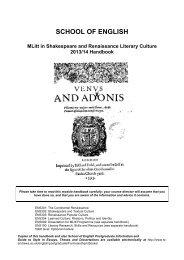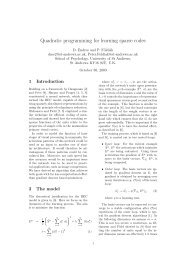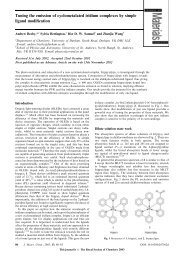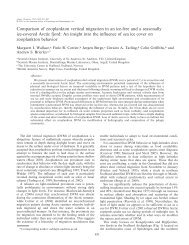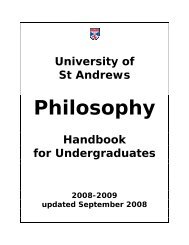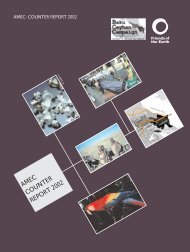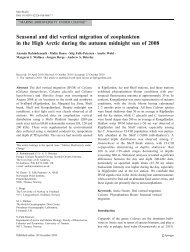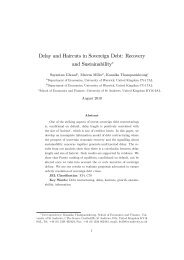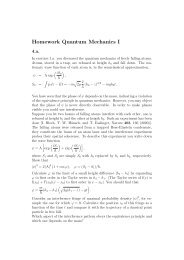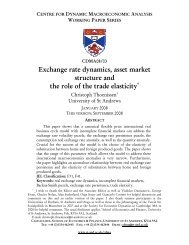guide to pre-advising in honours philosophy - University of St Andrews
guide to pre-advising in honours philosophy - University of St Andrews
guide to pre-advising in honours philosophy - University of St Andrews
You also want an ePaper? Increase the reach of your titles
YUMPU automatically turns print PDFs into web optimized ePapers that Google loves.
elationships <strong>to</strong> objects purely qualitative <strong>in</strong> some sense, or can we refer directly <strong>to</strong><br />
objects and grasp s<strong>in</strong>gular propositions about them? What is it for a proposition <strong>to</strong> be<br />
s<strong>in</strong>gular, for a term <strong>to</strong> be s<strong>in</strong>gular, and for a term <strong>to</strong> be referr<strong>in</strong>g? What are the<br />
relationships between these phenomena? What ex<strong>pre</strong>ssions <strong>of</strong> natural language are<br />
referr<strong>in</strong>g terms? Must we be acqua<strong>in</strong>ted with an object <strong>to</strong> refer <strong>to</strong> it or <strong>to</strong> have s<strong>in</strong>gular<br />
thoughts about it? What philosophical consequences follow from different answers <strong>to</strong><br />
these questions?<br />
Assessment method: 50% cont<strong>in</strong>uous assessment; 50% exam<br />
Prelim<strong>in</strong>ary read<strong>in</strong>g:<br />
The <strong>St</strong>anford Encyclopedia <strong>of</strong> Philosophy entries "S<strong>in</strong>gular Propositions" and<br />
"Reference" will be useful background. A core text for the module will be The<br />
Reference Book, by J. Hawthorne and D. Manley. <strong>St</strong>udents may also want <strong>to</strong> revisit the<br />
follow<strong>in</strong>g texts discussed <strong>in</strong> PY3701: G. Frege's "On Sense and Reference", B. Russell's<br />
"On Denot<strong>in</strong>g", and S. Kripke's Nam<strong>in</strong>g and Necessity.<br />
PY4635 CONTEMPORARY MORAL THEORY<br />
Credits: 30.0<br />
Pre- and Co-requisite: PY3702<br />
Anti-requisite: PY4808<br />
Course coord<strong>in</strong>a<strong>to</strong>r: Ben Sachs (email: bas7)<br />
Course teacher: Marcia Baron (email: mb253)<br />
Class Hour: TBA<br />
Description: This module aims <strong>to</strong> provide a critical ap<strong>pre</strong>ciation <strong>of</strong> the ma<strong>in</strong><br />
contemporary moral theories. It focuses on the debate between the two ma<strong>in</strong> rival<br />
impartial moral theories, consequentialism and deon<strong>to</strong>logy. It then considers critiques<br />
<strong>of</strong> both these theories and their responses, and some alternative approaches, <strong>in</strong>clud<strong>in</strong>g<br />
– for example - virtue ethics, fem<strong>in</strong>ist ethics and moral particularism.<br />
Assessment method: 50% cont<strong>in</strong>uous assessment; 50% exam<br />
Suggested <strong>pre</strong>lim<strong>in</strong>ary read<strong>in</strong>g:<br />
Scheffler, S. (ed.), Consequentialism and Its Critics, OUP 1988.<br />
Kagan, S., Normative Ethics, Westview 1998.<br />
Darwall, S., Deon<strong>to</strong>logy, Blackwell, 2003.<br />
GK4117 Lies, His<strong>to</strong>ry and Ideology <strong>in</strong> Athenian Literature and Thought<br />
Co-ord<strong>in</strong>a<strong>to</strong>r: Alex Long (agl10)<br />
Class hour: Thursday 11am <strong>to</strong> 1pm<br />
We shall exam<strong>in</strong>e s<strong>to</strong>ries about the Athenian past, particularly the myth <strong>of</strong><br />
‘au<strong>to</strong>chthony’, accord<strong>in</strong>g <strong>to</strong> which the Athenians’ native land gave birth <strong>to</strong><br />
18


